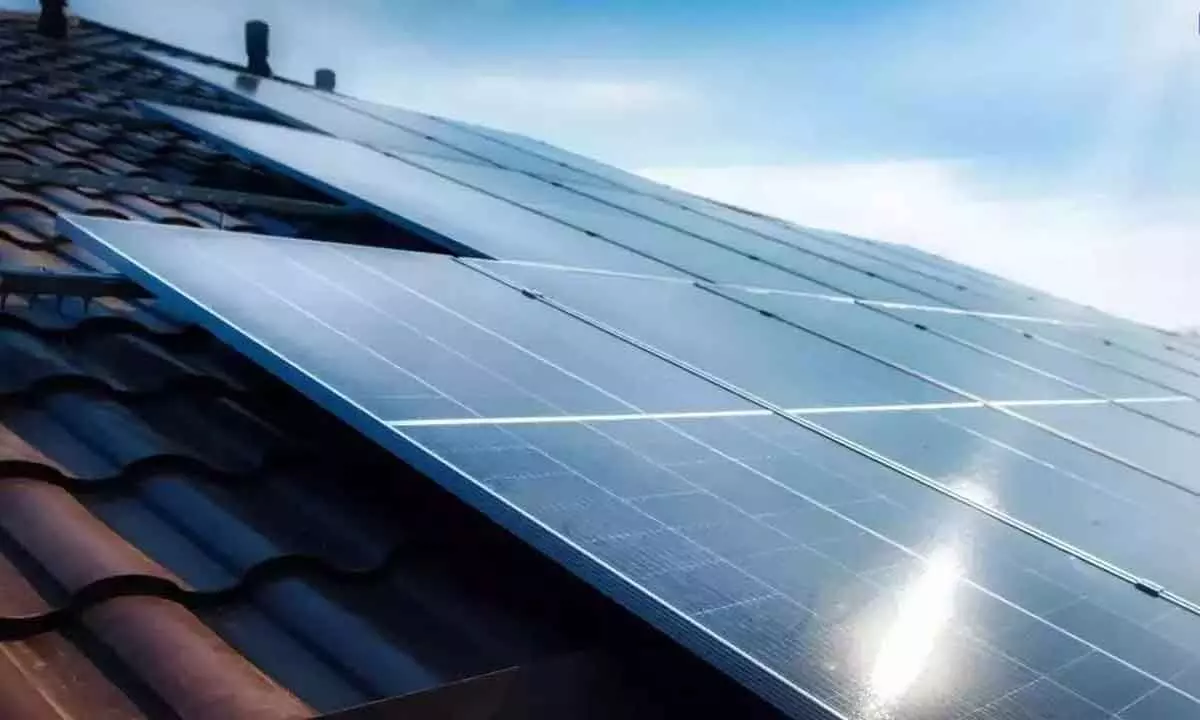Everyone backs solar energy, but only a few have installed solar rooftop system
image for illustrative purpose

A glaring fact about the country's solar sector is that though the awareness level remains quite high, the adoption level is nothing to write home about. The tragic irony is that although many are aware of the advantages of solar energy systems, most fail to embrace them for varied reasons. That has been the findings of a recent Luminous Power Technologies study on ‘Solar Spectrum of New India’. The dichotomy is that despite several government initiatives and the critical need for clean energy 97 per cent of respondents have not installed solar rooftop system in their homes.
According to the study, the top barriers to the adoption of solar power in India are: top of form accessibility, shortage of specialised skills, and perceived cost implications. While 85 per cent believe their city has ideal weather conditions for installing solar-powered rooftop systems, underscoring a widespread recognition of its sustainability advantages, 24 per cent of respondents say solar energy solutions are inaccessible to them. As regards specialised skills, 90 per cent agreed that specialised skills are necessary for installing solar solutions such as rooftop panels, indicating the perceived importance of technical expertise in the field. Around 45 per cent of the respondents state that skilled labour for implementing solar energy solutions is unavailable in their surroundings. The results indicate the gap between demand and supply of skilled personnel.
The survey further reveals that more than half the respondents perceive the top challenge to be a lack of awareness about career opportunities (52 per cent). Furthermore, nearly one in every five respondents (19 per cent) believes lack of company-driven initiatives to handle training. This indicates a need for industry stakeholders to take the lead in driving awareness for career-building opportunities in the solar power sector. Quite interestingly, Luminous has partnered with NBFCs like Ecofy andCredit Fair to offer affordable solar financing options to individuals, trust-run institutions, housing societies, and small and medium industries for installing clean energy systems. We should envision a future where communities across the nation come together to harness the immense potential of solar power, paving the way for a sustainable and energy-efficient tomorrow. This research aids in understanding the changing consumer perceptions, their limitations as well as openness towards adoption of new energy sources. The efforts must be directed towards bridging the skills gap and fostering a skilled workforce for India to unlock the full potential of solar energy and push sustainable development across the country.
The research has some interesting findings about the perceived cost implications of solar energy adoption. This barrier is preventing consumers from understanding the adoption phase. While a majority of respondents (58 per cent) view solar energy as cost-effective in the long term, concerns about high initial installation costs are still prevalent among 59 per cent of respondents. In fact, amongst people who have not currently installed solar rooftops, a noteworthy proportion (55 per cent) believes that the cost of implementing solar power solutions is slightly more expensive compared to traditional energy sources, and another 37 per cent claim it is considerably more expensive. This suggests the need to build awareness about financial schemes and avenues available for consumers, who are prepared to adopt such solutions but refrain from going ahead due to reservations about the cost.

